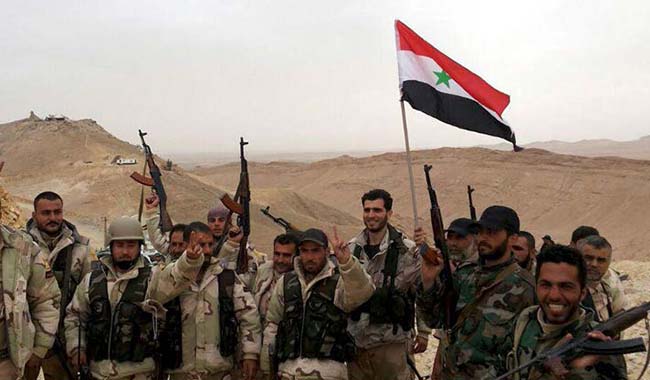“Syria is the worst war, the worst humanitarian crisis, the worst displacement crisis, the worst refugee crisis in a generation. So we expect there to be continued, uninterrupted US help and engagement in the coming months,” these words were spoken by the US newly-elected President Donald Trump.
The Arab Spring uprisings in Tunisia, Egypt, Libya, Bahrain and Yemen inspired protests in Syria. Pro-democracy protests erupted in March 2011 in the southern city of Deraa after the arrest and torture of some teenagers who painted revolutionary slogans on a school wall. After security forces opened fire on demonstrators, killing several, more took to the streets. The unrest triggered nationwide protests demanding President Assad’s resignation. The government’s use of force to crush the opposition merely hardened the protesters’ resolve. By July 2011, hundreds of thousands were taking to the streets in Syria. Opposition supporters eventually began to take up arms, first to defend themselves and later to expel security forces from their local areas. Violence escalated and the country descended into civil war as rebel brigades were formed to battle government forces for control of cities, towns and the countryside. Fighting reached the capital Damascus and second city of Aleppo in 2012.
By June 2013, the UN said 90,000 people had been killed in the conflict. More than five years after it began, the war has killed over 250,000 people, half of whom are believed to be civilians. Bombings are destroying crowded cities and horrific human rights violations are widespread.
The emergence of the self-styled Islamic State of Iraq and the Levant (ISIL) compounded the political turmoil. The ISIL group capitalized on the chaos and took control of large swathes of Syria and Iraq, where it proclaimed the creation of a “caliphate” in June 2014. Its many foreign fighters are involved in a “war within a war” in Syria.
In September 2014, a US-led coalition launched air strikes inside Syria in an effort to “degrade and ultimately destroy” ISIL. But the coalition has avoided attacks that might benefit Assad’s forces. Russia began an air campaign targeting “terrorists” in Syria a year later, but opposition activists say its strikes have mostly killed Western-backed rebels and civilians. Ten months after vowing to “degrade and ultimately destroy” the organization, President Obama ruefully acknowledged that ISIL “has been particularly effective at reaching out to and recruiting vulnerable people around the world including here in the United States, and they are targeting Muslim communities around the world.” He added, “Ideologies are not defeated with guns, they are defeated by better ideas, a more attractive and more compelling vision.”
From the declaration of the caliphate until early 2016, some 90 terrorist attacks were either carried out or inspired by ISIL in 21 countries around the globe, from California to Sydney, with an estimated 1,400 people killed. The attacks carried the same message of punishment, deterrence and provocation as the hostage beheadings, while also demonstrating ISIL’s global reach.
The UN accused ISIL of waging a campaign of terror. It has inflicted severe punishments on those who transgress or refuse to accept its rules, including hundreds of public executions and amputations. Its fighters have also carried out mass killings of rival armed groups, members of the security forces and religious minorities, and beheaded hostages, including several Westerners.
Families are struggling to survive inside Syria, or make a new home in neighboring countries. Others are risking their lives on the way to Europe, hoping to find acceptance and opportunity. And harsh winters make life as a refugee even more difficult. At times, the effects of the conflict can seem overwhelming. More than a million migrants and refugees crossed into Europe in 2015, sparking a crisis as countries struggled to cope with the influx creating division in the EU over how best to deal with resettling people. It is said that thousands of Syrians flee their country every day. They often decide to finally escape after seeing their neighborhoods bombed or family members killed. The risks on the journey to the border can be as high as staying. Families walk for miles through the night to avoid being shot at by snipers or being caught by warring parties who will kidnap young men to fight for their cause.
There are now 4.8 million Syrians scattered throughout the region, making them the world’s largest refugee population under the United Nations’ mandate. It’s the worst exodus since the Rwandan genocide 20 years ago.
During 2016, the UN predicts $7.7 billion is required to provide emergency support and stabilization to families throughout the region. As of October, less than half of this appeal has been funded.
Home » Opinion » Unending War in Syria
Unending War in Syria
| Hujjatullah Zia

